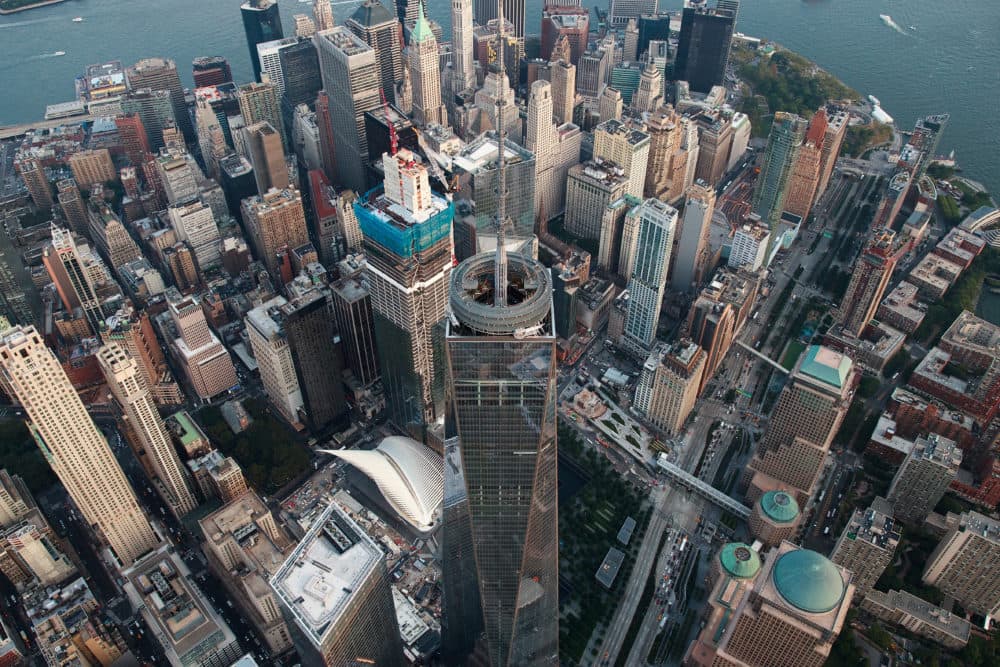Advertisement
Point taken: Reconsidering city life

More and more Americans are moving out of big cities to smaller towns and suburbs – reversing a three decades long trend of growth for cities.
In a recent show Why Americans are leaving big cities behind, we explored what is making Americans reconsider city life.
We asked listeners to tell us the pros and cons of where they live: Have you moved from a big city to a smaller place? What pushed you to make the change? Do you live in a big city and feel like you can’t move away?
Here’s what On Point listeners told us:
Cathie Stone, Pahrump, NV
Cathie moved out of Las Vegas, about 55 miles west, to a small town called Pahrump. She left us a message on the On Point VoxPop app about why she finds life easier in a small town:
“Las Vegas has just gotten too big. It's too big. They're always doing construction. The traffic is horrible. The rents have just gone out of sight. It takes me just as long to drive the 55 miles into Las Vegas as it does for me to drive across Las Vegas, which is about 25 miles.
"So, yeah, this is way better out here. The air's clear. I'm looking out at mountains all around me and all around me people are very nice. All the stores are in one location. You don't have to drive all over looking for things. It's just beautiful.”
Max Prybyla, Syracuse, NY
Max, 27, recently left New York City after eight years. In a VoxPop message, he says the pandemic propelled his desire to leave the city for a more rural area.
“I felt like I was essentially shuffling from work back to my apartment. And so even though things were returning to normal and people were starting to go back out to bars and whatnot, I was still feeling a really large sense of loneliness and isolation and claustrophobia. And I wasn’t satisfied with my office job being surrounded by concrete all the time.
“During the pandemic, I found that my time out in nature really kept me sane and helped me be happy. … Now I’m living in a suburb of Syracuse, New York which is a lot more rural and I’m going to school for horticulture. I’m looking forward to being in an industry that helps promote plant life and greenery. I think that’s really important.”
Caitlin Poole, Holden, MA
Caitlin worked in Boston for many years, with a long commute. Once she had a baby, she said she realized having a long commute was not sustainable. So she moved back to her hometown of Ashby, Massachusetts:
“The commute time for me could be upwards of 2 hours. And when I went back to work, I felt like I never saw my newborn baby. I would get home when he went to sleep and would often wake up to leave in the morning while he was still sleeping.
"So I found a job closer to the suburbs and eventually started working for myself, which allowed me to move to a small town. I moved back to my hometown and at first it was great. And then, slowly, I started realizing that the town that I had loved and grew up in, in this climate, had become a place that did not share the same values as my family and I.”
But Caitlin says small town living can have its drawbacks.
“I just felt uncomfortable in a place where I felt like I couldn't even share my own political views without aggressive retribution. And the school that my kids were going to had a Confederate flag flying directly next to the school. It was a private residence, but still it just really made me uncomfortable.
"We actually ended up moving to a suburb just outside of Worcester. And the population there is about 30,000 people and it's been a great middle ground. ... Sometimes moving to a small town has its drawbacks, if you are used to living in a more diverse and inclusive area.”